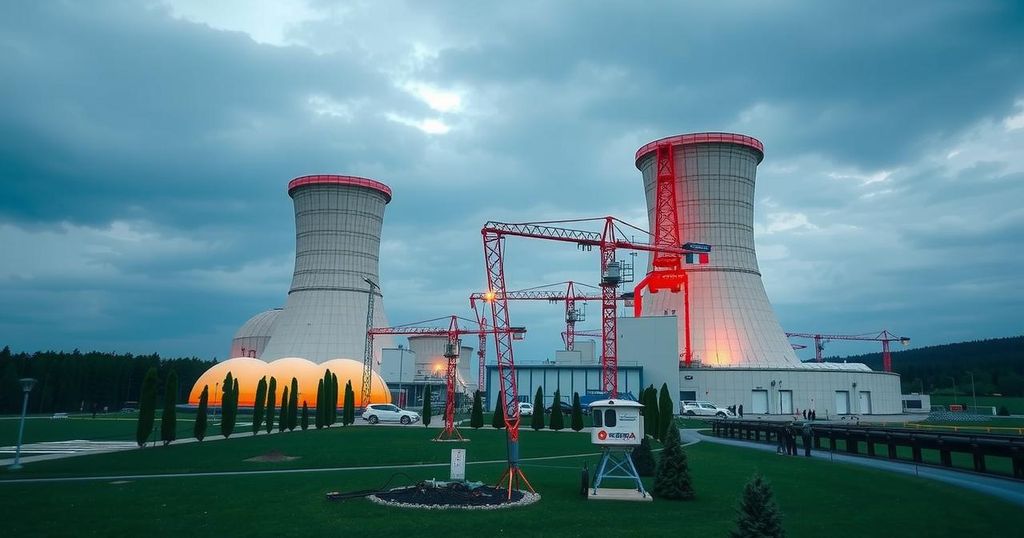Kazakhstan and Mongolia have signed a cooperation memorandum in nuclear energy, preceded by President Tokayev’s remarks on shared resource development. Kazakhstan held a referendum to support a nuclear power plant, engaging international firms for partnerships. The ADB approved a loan for road reconstruction to improve connectivity in the region. Astana is emerging as a captivating tourist destination, highlighted by its unique architecture and rich cultural experiences.
Recent developments in Kazakhstan and Mongolia have highlighted a significant step forward in bilateral cooperation in the nuclear energy sector. On October 29, both nations formalized their partnership through the signing of a cooperation memorandum, facilitated by Kazakhstan’s Ministry of Energy and the Executive Office of the Nuclear Energy Commission of Mongolia. This advancement followed a noteworthy visit by President Kassym-Jomart Tokayev to Ulaanbaatar, where he underscored the shared natural resource potential of both countries. During his visit, he stated, “We will work together on the exploration and development of iron, phosphate, bauxite, and rare mineral deposits. Kazakh entrepreneurs are ready to explore the potential of Mongolia’s mining sector.” The memorandum reinforces a strategic partnership, marked by the exchange of documents during their first Business Council meeting, aimed at fostering business collaboration. In tandem with this agreement, Kazakhstan has progressed in its domestic nuclear ambitions, recently holding a referendum on October 6 to gauge public support for constructing a nuclear power plant. The Ministry of Energy has shortlisted several international contenders for this project, including companies from China, South Korea, France, and Russia, intending to collaborate with international organizations like the International Atomic Energy Agency (IAEA) for oversight. The global community has also taken notice of Kazakhstan’s strategic position as a significant uranium supplier, producing 43% of the world’s supply in 2022. Reports suggest that Western nations now have opportunities to engage with Kazakhstan in this vital energy sector. Companies such as Rosatom, China’s National Nuclear Corporation, Korea Hydro & Nuclear Power, and France’s EDF are current candidates vying for partnerships on the upcoming nuclear power plant project, which is awaiting a final decision in 2025. Moreover, recent interactions with South Korea have been fruitful, with Kazakhstan’s Energy Minister meeting with key players in the energy sector to discuss potential collaborations that would encompass not only nuclear energy but also oil, gas, and renewable resources. In a separate development, the Asian Development Bank (ADB) approved a loan of approximately $291.49 million to KazAvtoZhol for the reconstruction of 208 kilometers of central Kazakhstan’s roadway. This project is poised to enhance connectivity, road safety, and trade opportunities within the region, addressing critical infrastructure needs and improving transportation efficiency. Culturally, the city of Astana has gained attention for its unique architecture and tourist attractions, differentiating itself from Almaty. It offers visitors a blend of contemporary buildings, significant monuments, and a vibrant culinary scene, showcasing Kazakhstan’s nomadic heritage.
Kazakhstan and Mongolia have embarked on a cooperative initiative in nuclear energy, enhancing their bilateral relations in this crucial sector. The decision followed a state visit by President Kassym-Jomart Tokayev to Mongolia, where discussions on leveraging both countries’ natural resources were emphasized. Furthermore, Kazakhstan’s strategic significance as a major uranium supplier has attracted global interest in its nuclear energy potential, especially in light of the upcoming referendum on a nuclear power plant that underscores national aspirations in energy production. Meanwhile, Kazakhstan seeks to bolster its infrastructure through critical loan support from ADB, featuring projects that will elevate regional trade and connectivity. Astana is also positioning itself as a compelling destination for tourists seeking cultural and architectural richness in the capital.
The recent agreement between Kazakhstan and Mongolia represents a significant step in enhancing cooperation in the nuclear sector, underlining the strategic importance of both nations in energy production. Kazakhstan’s ongoing initiatives, including the forthcoming referendum on a nuclear power plant and significant international engagement, further highlight its ambitions within the global energy landscape. The support from the Asian Development Bank for vital infrastructure projects reflects the country’s commitment to enhancing connectivity and promoting economic growth. Additionally, Astana’s cultural allure continues to attract global visitors, showcasing Kazakhstan’s unique blend of modernity and tradition.
Original Source: en.inform.kz






